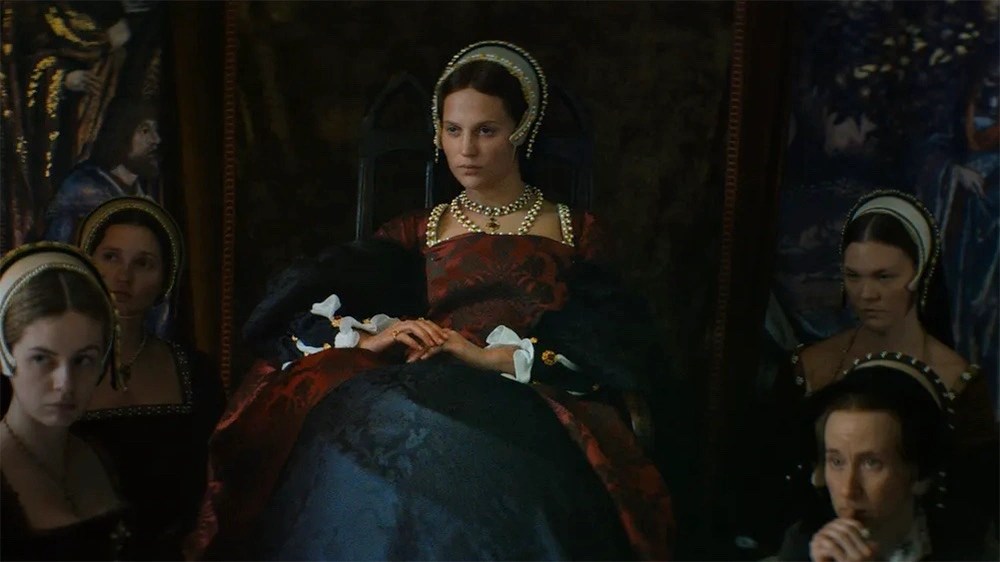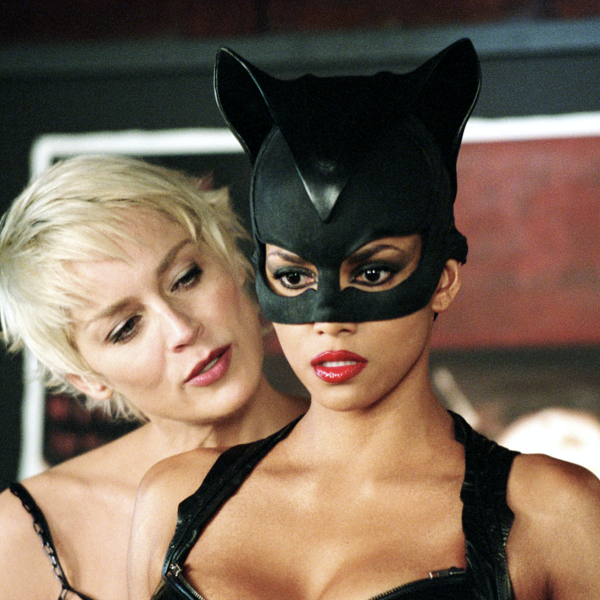There have been any number of films about Henry VIII and how the English king’s various wives kept losing their heads, but precious few have focused on the one queen who managed to outlive him; Katherine Parr has been a bit player in the likes of 1953’s “Young Bess” (in addition to several movies titled after her murderous husband, and more recently the final season of Showtime’s “The Tudors”), but Karim Aïnouz’s “Firebrand” puts this radically progressive woman of the people at the center of the story in a way that has never been done before.
And yet, despite its righteous attempt to reframe history — an effort supported by the natural steeliness of Alicia Vikander’s performance as a social activist who’s trying to reshape her country without screwing up her marriage to its tyrannical sovereign — this bland period drama can’t help but feel like a familiar tale of court intrigue. Not even Jude Law, whose riveting and revoltingly bellicose take on Henry VIII is equal parts Robert Shaw in “A Man for All Seasons” and Robert Baratheon in “Game of Thrones,” is enough to supply “Firebrand” with its missing spark. Aïnouz (“Invisible Life”) revisits Parr’s life with an unsanitized integrity that emphasizes the danger she put herself in on behalf of her people, and sometimes he even follows his film’s directive to “draw [our own] conclusions from what history doesn’t tell us,” but the muted and claustrophobic movie that leaves him with seldom feels as radical as its royal highness.
It does, however, feel immediately raw and lived in. When “Firebrand” begins, Katherine has already managed to survive a few years of being married to Henry VIII, and during that time she’s become a beloved maternal figure to the various children the king’s other wives have left behind. She’s established key — if conditional — alliances with her step-son’s uncles (Eddie Marsan and Sam Riley as the richly bearded Seymour brothers), and even became comfortable enough in her station to publish a devotional book in her own name, making her the first English woman ever to do so. Outside of the remote castle walls, the Plague rages and Protestant ideas that seek to disempower the Church of England are on the rise; inside the musty fortress where the vast majority of this movie takes place, Katherine seeks to avoid one of those things while inflaming the other.
Vikander’s similarly granite performances in period films like “Anna Karenina” and “A Royal Affair” might threaten to make her work here feel a little been there, done that if not for the well-defined vulnerability she brings to Katherine’s every move. In a crucial first act scene that casts a long shadow over the rest of the movie, Katherine summons the courage to shake off the king’s bodyguards and sneak off to an impassioned reformist lecture from her childhood friend Anne Askew (Erin Doherty); when Anne challenges her to help fund the cause, the otherwise whip-smart Katherine trembles as she gives her former BFF one of Henry’s priceless amulets, a treasure that could only be traced back to her. Vikander cultivates that feminist tension between moral urgency and mortal danger from start to finish, which allows “Firebrand” to remain somewhat engagingly fraught even when the nuances of Katherine’s religious fight get lost amid her struggle to stay alive.
That struggle comes into view almost the minute Henry returns to England and trundles his way into the picture, his corpulent leg still oozing pus from a wound he sustained in a javelin contest some 10 years earlier. A far cry from the dashing King he was a few wives ago, this Henry is a sallow and festering reflection of the country that he’s maintained in his image. Not only does he talk like Gollum, referring to himself as “we” because he’s conflated his identity with that of the crown and/or God, but his legs are like soggy tree trunks, and his greasy fingers — always pawing at someone’s face — like sausages that someone left in the microwave too long. A shot of his bare ass as he tries to thrust a back-up heir into Katherine’s belly is so unappetizing you almost forget the actor it belongs to.
Maddening as it is that Law surely reverted back to his natural beauty as soon as the shoot was over (a superpower that continues to enable his exquisite second life as a character actor), the sense of a god trapped inside a monster’s body serves the menacing power of a volatile character whose terrible strength is disguised by his physical weakness. Which isn’t to suggest that anyone in court ever loses sight of Henry’s eagerness to behead anyone who crosses him.
On the contrary, “Firebrand” never feels more sure of itself than it does in the scenes where Henry presides over a feast or some other bit of social “fun,” as his mood swings cast a palpable air of paranoia over everyone in sight. It’s a familiar riff on the mortal fear characterized by that episode of “The Twilight Zone” about the god-like kid (or, you know, by any authoritarian government across recorded history), but the grounded nature of Aïnouz’s film helps articulate how fraught it must have been for Katherine to sustain her hopes for the future in the face of such present danger. The earthy tones of Hélène Louvart’s typically expressive cinematography allow “Firebrand” to resist the false lushness that we’ve come to expect from even a Tudor-era period piece, while Michael O’Connor’s oppressive costumes — feathered and jewel-encrusted prisons of fabric — remind us that not even the royal family’s riches are enough to afford them real freedom from their king.
And yet, that organic style grows old and deadening over the course of a film that consistently fails to mine compelling drama from its conditions. Adapted from Elizabeth Fremantle’s book “The Queen’s Gambit” (apparently someone else got to that title first), Jessica and Henritta Ashworth’s script is full of smart flourishes but strains to show the old “trying to bear the king a baby son so he doesn’t murder me” plot in a new light. After a certain point, the story is largely dictated by the gushing wound in Henry’s leg, while Katherine’s dream of disseminating an English-language bible that the common folk might actually be able to read — a dream so dear to her that she’s willing to risk her life for it — fades into an afterthought.
“Firebrand” pays frequent lip service to the courage it surely required for Katherine to do her royal duties with a straight face at the same time as she cultivated such radical ideas in secret, but little about the film itself reflects the courage of her convictions. Only in the dying minutes of the story, when Aïnouz and his writers suddenly trade realism for revisionist history, does their movie feel like a fitting tribute to a woman who insisted on making it on her own terms.
Grade: C+
“Firebrand” premiered in Competition at the 2023 Cannes Film Festival. It is currently seeking U.S. distribution.






